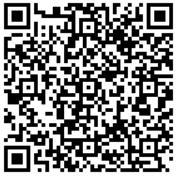School Health Services
Greene County School nurses work in the educational setting with students who are basically well and also with those who have chronic illnesses. Our nursing service focuses on health counseling, health monitoring, education, and consultation.
The School Nurse is responsible for:
• Case Management for chronically ill children
• Vision and Hearing Screening
• Reviewing and updating immunization and physical records
• Medication self administration and monitoring
• Development and implementation of Individualized Health Plans for children with special health needs
• Control of communicable diseases
• Screenings for head lice
• CPR, First Aid and OSHA training for staff
• Initiating Telemedicine Visits
The health services website is strictly for educational and informational purposes and is NOT intended to be a substitute for a health care provider's consultation. The use of information provided on this site does not create a doctor-patient or hospital-patient relationship with the reader. Related links are to web sites that might be of interest to you. The inclusion of any resource or links in these pages does not imply endorsement.
Telehealth Information
Cardiac Arrest Warning Information
When is your child too Sick for School?
If your child needs to be out of school due to illness, please notify their school as soon as possible.
This guidance can help schools and families support a safe learning environment, while lowering the risk or spread of common respiratory viral illnesses including flu, COVID-19 and RSV.
Keep Your Child at Home If...
Your child has been told to stay out of school by a medical provider, School Nurse, or the Health Department, etc. and/or they have any of these symptoms:
- Temperature 100.4 degrees or above
- Throwing up
- Chills
- Diarrhea
- Rash covering entire body
- Symptoms of a respiratory virus not better explained by another cause
Symptoms of a Respiratory Virus May Include...
- Chills
- Cough
- Runny nose
- Fatigue (tiredness)
- Fever or feeling feverish
- Headache
When Can Your Child Return to School?
When all symptoms are getting better overall and..
- They have not had a fever of 100.4 degrees or above for 24 hours without taking fever reducing medicine
- They have not thrown up for 24 hours
- They have not had diarrhea for 24 hours
Or
- They have provided documentation from their healthcare provider.
Hand Hygiene and Respiratory Etiquette
- Washing hands can prevent the spread of infectious diseases. Please continue to reinforce proper handwashing to lower the risk of spreading viruses.
- Teach and reinforce covering coughs and sneezes to help keep students from getting and spreading infectious diseases, including COVID-19.
- Reinforce hygiene and respiratory etiquette behaviors such as before and after eating and after physical activity.
- Use hand sanitizer containing at least 60% alcohol.
Type 1 and Type 2 Diabetes Information
Flu Shot Consent
